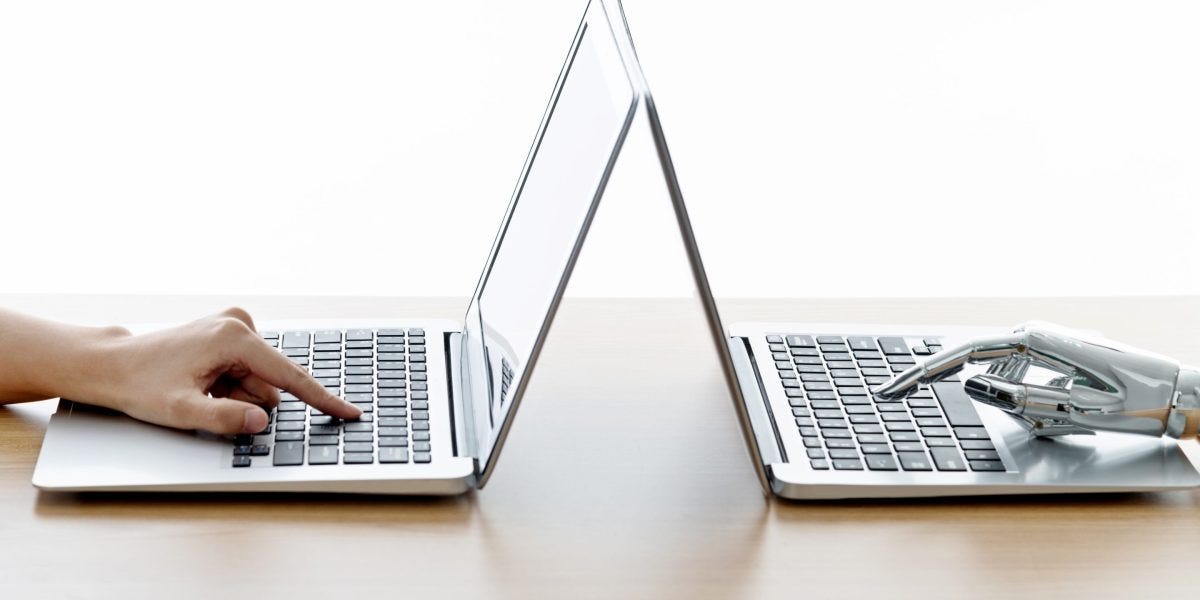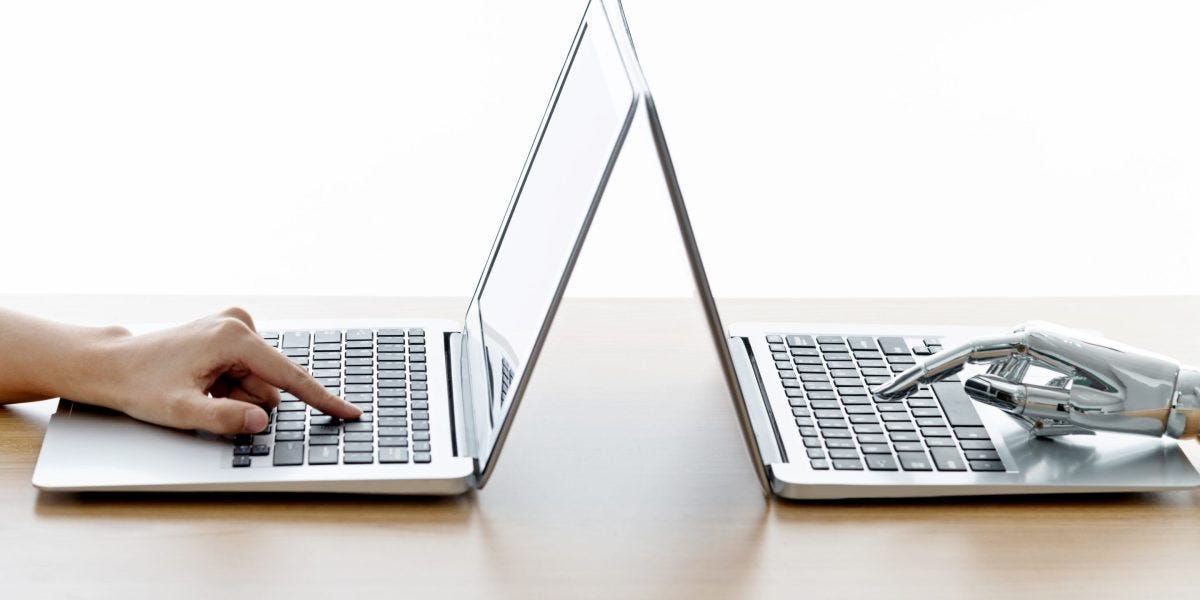The Health Strategist
institute for
continuous health transformation
and digital health
Joaquim Cardoso MSc
Chief Research and Strategy Officer (CRSO)
May 12, 2023
ONE PAGE SUMMARY
Accenture’s research reveals that generative artificial intelligence (A.I.) will have a profound impact on the way people work, potentially affecting 40% of working hours.
- This transformative technology, exemplified by large language models like ChatGPT, offers significant productivity, creativity, and skill enhancement.
- Every role in every enterprise has the potential to be reinvented. To calculate the impact,of generative A.I., Accenture manually identified 200 tasks related to language and assessed which tasks had higher potential to be automated or augmented.
- Rather than displacing jobs, generative A.I. will reinvent tasks, automating some, assisting with others, and introducing new responsibilities.
- The collaboration between humans and A.I. will redefine work across various roles and industries.
Five core ways of co-working with generative A.I. are foreseen:
- as an always-on advisor,
- creative partner,
- software developer,
- automation driver, and
- enterprise protector.
What organizations can do?
- Companies need to explore the adoption of A.I. applications, customize models with their own data, and prioritize responsible and ethical deployment.
- Policymakers and businesses should establish a collaborative governance approach to ensure inclusivity, safety, and ethical development of A.I.
By embracing generative A.I. and reimagining work processes, organizations can gain a competitive advantage and foster innovation in a rapidly evolving landscape.
The time for experimentation and adaptation is now.
DEEP DIVE

A.I. will potentially impact 40% of your working hours, according to Accenture
Accenture has identified 200 tasks related to language and assessed which tasks had higher potential to be automated or augmented.
Fortune
PAUL DAUGHERTY
May 11, 2023
There have been four moments in my life when I have been truly amazed by technology: in 1983, when I saw the first Apple Lisa graphical user interface; in 1992 when I saw one of the first web browsers; around 2007, with the launch of the iPhone; and last year, when I began to dive deeper into the large language models that are the foundation of generative artificial intelligence.
With the rise of ChatGPT and other forms of generative A.I., we will see a fundamental change in the way people will work and access information. We are still in the early days, and there are many big questions emerging, including whether these changes will displace parts of the workforce. What we do know is that by approaching work differently, with a fusion of technology and human capability, we can equip people to perform at levels that are simply not possible today.
You can think of generative A.I. as a superpower-a multiplier of human capability-that will bring new levels of productivity, creativity and skills to your work every day.
Companies will need to think about work differently. Some workers will learn new skills to be effective, while others will need to adapt to working with an A.I. co-pilot all the time. As this becomes the norm, these models will be used to reinvent the way work is done, dramatically amplifying what people can achieve.

Changing tasks
Every role in every enterprise has the potential to be reinvented. To calculate the impact,of generative A.I., Accenture manually identified 200 tasks related to language and assessed which tasks had higher potential to be automated or augmented.
We currently estimate that generative A.I. will impact 40% of people’s working hours. This does not mean 40% of jobs will be eliminated-far from it.
We currently estimate that generative A.I. will impact 40% of people’s working hours. This does not mean 40% of jobs will be eliminated-far from it.
In any given job, some tasks will be automated, some will be assisted-freeing people to do things that matter more-and some will be unaffected by the technology.
There will also be a large number of new tasks for humans to perform, such as ensuring the accurate and responsible use of new A.I.-powered systems.
One great example is customer service. The ability of generative A.I. to understand a customer’s intent and put massive amounts of information at the agent’s fingertips greatly increases their capacity to resolve the customer’s problem faster and more thoroughly. A recent MIT/Stanford study even suggested a 14% boost in productivity beyond what a chatbot or human can do alone.

Ways of co-working
The potential is enormous across all kinds of roles. We expect to see five core ways that generative A.I. will commonly work with people:
The potential is enormous across all kinds of roles. We expect to see five core ways that generative A.I. will commonly work with people:
- As an always-on advisor, putting new kinds of intelligence into human hands in areas ranging from sales enablement and human resources to medical and scientific research and corporate strategy.
- As a creative partner, offering new ways to reach and appeal to audiences, bringing unprecedented speed and innovation to production design, design research, visual identity and naming, copy generation and testing and real-time, personalized customer relationship marketing.
- As a software developer, boosting productivity in areas ranging from automating code writing to predicting and pre-empting problems. For example, Accenture is piloting the use of OpenAI large language models that can automatically generate SAP documentation through a Microsoft Teams chat as developers work.
- As an automation driver, especially those tasks that provide historic context, present the next best actions, or summarize or make intelligent predictions.
- As an enterprise protector, ascompanies learn to use generative A.I. to their advantage in governance and information security. One of the world’s largest oil and gas companies is using it to make its data more easily accessible across its business, which lowers the risk of safety accidents.
Companies must assess a range of options, from using A.I. applications such as ChatGPT and DALL-E, to customizing or fine-tuning models with their own data to increase accuracy and their usefulness.
It is equally critical to ensure the use of generative A.I. is responsible by design and that models do not create unacceptable risk for people and businesses. More work also needs to be done by policymakers and businesses to create a collaborative governance approach-so A.I. is developed in ways that are inclusive, safe, and ethical while also enabling progress and promoting experimentation. This creates an essential foundation for trust across society, while unlocking new sources of growth.
By reimagining the way work is done and applying generative A.I. to tasks that allow people to work differently alongside machines, companies will gain a big leg up on less innovative competitors. The time to begin experimenting is now.
Paul Daugherty is CTO and group chief executive of technology at Accenture. He is the co-author of Human + Machine: Reimagining Work in the Age of AI.
Originally published at https://fortune.com.












